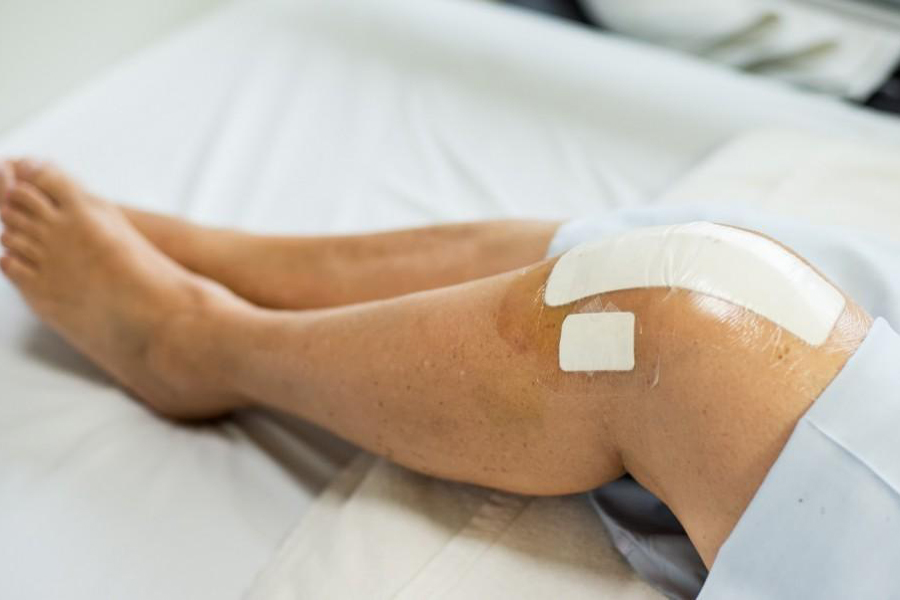
Sleep isn’t just downtime. It is your body’s active time to carry out some of its most critical restorative functions. For anyone who values the strength and health of their joints, learning about how sleep can help your joints recover and maintain a full range of motion is essential.
Disregarding sleep as a priority may inhibit your body’s ability to repair micro-injuries sustained from daily abuse or even workouts. The stiffness, decreased range of motion, and hastened joint degeneration occur.
The pituitary gland fills with growth hormone during early non-rapid-eye-movement (NREM) sleep, particularly stages 3 and 4 (the so-called slow-wave sleep).
Chronic lack of sleep also serves as a low-grade stressor, stimulating interleukin-6 (IL-6) levels and tumor necrosis factor-alpha (TNF-α)—two essential drivers of inflammation. Good sleep instead—steady and high quality:
Sleep has a direct impact on the way your brain processes pain signals. Inadequate sleep can:
|
Sleep Stage |
Percentage of Total Sleep |
Benefits for joints |
|
NREM Stage 1–2 |
50–60% |
Shallow rest, consolidation of memory |
|
NREM Stage 3–4 |
15–25% |
Secretion of growth hormone, regeneration of tissues |
|
REM Sleep |
20–25% |
Emotional regulation, neural recovery |
Aim for at least 7–9 hours per night to peak slow-wave (deep) sleep, the time when most of the body’s recovery processes occur.
With less inflammation and pain, joints move more freely, making daily living easier and allowing athletes to perform at their best.
Adequate sleep also promotes muscle recovery. Strong knee, hip, and spinal muscles help stabilize joints and prevent them from going out of alignment.
Poor sleep disrupts appetite hormones (ghrelin and leptin), making weight gain more likely. This adds unnecessary load to weight-bearing joints.
If you are an active athlete or weekend warrior, rest is key to recovering post-workout or post-injury, reducing downtime, and preventing long-term injury.
To properly regulate your circadian rhythms, maintain the same sleep schedule every day, even on weekends.
Maintain a cool (about 18–20°C), dark, quiet bedroom. Purchase a mattress and pillows that support spinal alignment.
Gentle stretching, deep-breathing exercises, or progressive muscle relaxation in the evening may help reduce tension in stiff joints as you try to sleep.
Stay away from screens (phones, tablets, TVs) at least one hour before bed. Blue light is known to “shut off” melatonin, a hormone necessary for sleep to set in.
Eating, drinking caffeine, and consuming alcohol close to bedtime can all disturb sleep patterns. If you need a snack, choose a light protein snack, and remember to get in your water.
Omega-3-rich foods (such as fatty fish and flaxseeds), antioxidants (berries and leafy greens), and spices such as turmeric: All promote joint health and improve sleep quality.
If chronic joint pain or sleep disruption does not improve with lifestyle changes, seek medical professionals. At DHEE Hospital, we have complete sleep and musculoskeletal examinations. We have a multifaceted strategy that treats the root of sleep disorders and painful joints to improve patients’ mobility and quality of life.
A personalized treatment plan may involve the following:
You cannot underestimate the importance of sleep in recovering your joints and total mobility. By knowing how restorative sleep powers tissue repair, quells inflammation, and modulates your perception of pain, you can make informed choices, from nightly habits to diet tweaks that keep your joints healthy and your moves effortless. Also, focus on 7-9 hours of sound sleep, follow the ergonomic and nutritional advice here, and if you keep hitting roadblocks, do not hesitate to come in for expert care at DHEE Hospital. Your joints and your comfort levels will thank you.
For most adults, 7 to 9 hours a night is ideal. Aim to accrue hours, at least 15–25% of that time, in deep (slow-wave) sleep when growth hormone spikes and tissue repair is at its peak.
Yes. Sleeping on your back while placing a pillow under your knees can help to keep your spine in line; to provide relief to your hips and lower back while you’re on your side, place a pillow on your legs.
Melatonin may help with sleep onset; however, always consult a physician before using it. Natural supplements, such as magnesium, can also assist muscle relaxation. Be sure to check for any negative interactions with other medications.
A 20-to-30-minute nap can decrease sleepiness and improve alertness without interfering with nighttime sleep, but it should not substitute for your main sleep period.
If you have chronic joint pain and are experiencing frequent awakenings, drowsiness during the day, or loud snoring, you should consider a sleep study and/or consultation with a specialist.